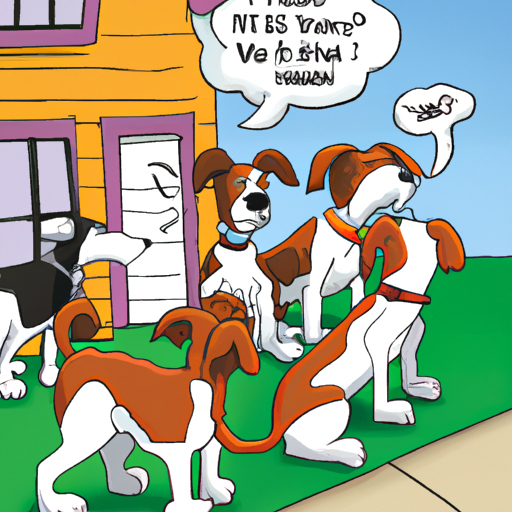For many dog owners, the constant barking of their furry friend is a part of life. But why do some dogs bark so much? Is it because they’re trying to communicate something, or could there be underlying issues causing this behavior? Let’s delve into the world of canine communication to better understand why our canine companions might be so vocal.
Table of Contents
- The Role of Barking in Canine Communication
- Reasons for Excessive Barking
- How to Discourage Excessive Barking
- Frequently Asked Questions
Key Takeaways
- Dogs bark as a form of communication, signaling various emotions or needs.
- Certain breeds are more prone to barking than others due to their genetic predisposition.
- Excessive barking could be a sign of underlying issues like anxiety, fear, or boredom.
- Training and behavior modification can help manage excessive barking.
The Role of Barking in Canine Communication
Dogs use barking as a primary means of communication. Just like humans use words and intonations to express different emotions, dogs vary their barks to signal various states and needs. You can learn more about this fascinating aspect of canine communication here.
Sometimes, a bark is just a bark. But other times, it might indicate that your dog is trying to tell you something. For instance, a quick, sharp bark could mean they’re surprised or scared, while a continuous, high-pitched bark could indicate they’re feeling anxious or threatened.
Would you like to understand your dog’s barks better? Check out this article from One Top Dog to get a deeper insight into the distinct types of dog barks and their meanings.
Reasons for Excessive Barking
While barking is a natural behavior for dogs, excessive barking can be a cause for concern. It’s essential to understand that different dog breeds have different barking tendencies. For example, breeds like the Beagle or Yorkshire Terrier are known for their propensity to bark.
There could be various reasons why your dog might be barking excessively:
- Attention-seeking: Dogs might bark to get your attention or to get you to engage with them.
- Boredom or loneliness: Dogs are social creatures. Being left alone for long periods can lead to boredom, resulting in excessive barking.
- Fear or anxiety: Dogs often bark when they’re scared or anxious. Loud noises, unfamiliar people or animals, or new environments could trigger such behavior.
- Territorial behavior: Dogs are territorial animals and often bark to warn off intruders.
Learn more about the different reasons for dog barking and how to manage them here.
How to Discourage Excessive Barking
While it’s natural for dogs to bark, excessive barking can be disruptive and stressful for both the dog and the owner. Here are some strategies to manage your dog’s barking:
- Provide sufficient exercise and stimulation: Regular physical and mental stimulation can help reduce barking caused by boredom or excess energy.
- Obedience training: Training your dog to understand and respond to commands like ‘quiet’ or ‘enough’ can be incredibly beneficial in controlling excessive barking.
- Positive reinforcement: Reward your dog when they stop barking on command. This could be with treats, praise, or petting.
- Consult with a professional: If your dog’s barking persists despite your best efforts, it may be time to consult a professional dog trainer or behaviorist.
For more tips on how to discourage excessive barking, check out this helpful guide.
Frequently Asked Questions
Why is my dog barking at nothing?
Your dog might not be barking at ‘nothing’. Dogs have keen senses and might be responding to sounds or scents that you can’t detect. Alternatively, this behavior could also be a sign of boredom or anxiety.
Should I ignore my dog’s barking?
Ignoring the barking can sometimes be effective if your dog is barking for attention. However, it’s important to address the root cause of the barking, especially if it’s due to fear, anxiety, or other underlying issues.
Can I use a bark collar on my dog?
While bark collars can deter barking, they should be used as a last resort and under the guidance of a professional. They do not address the underlying cause of the barking and can potentially cause more harm than good.
Understanding why some dogs bark so much can help us be better caregivers for our canine companions. By addressing the underlying issues causing excessive barking and providing our dogs with the care and training they need, we can ensure a happier, quieter environment for us all.



